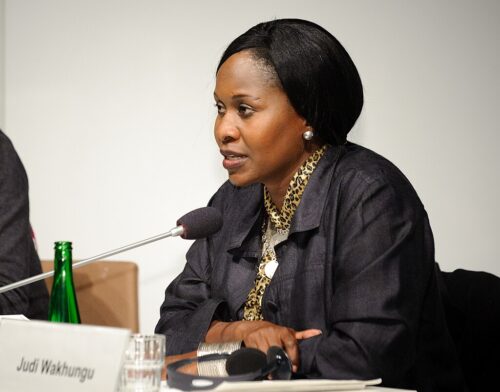To celebrate the International Day of Women and Girls in Science (today!), we’re taking the opportunity to look back at some of the incredible impact made by our program participants as they seek to improve Wikipedia’s coverage of women in the sciences.
Even if you haven’t yet taught with a Wikipedia assignment, enrolled in a Wiki Scholars & Scientists editing course, or engaged with other efforts to improve the world’s go-to online encyclopedia, Wikipedia’s persisting gender gap probably comes as no surprise to you – a gap that extends from its content across disciplines to its content contributors themselves. Over the years, Wiki Education’s programs and resources have empowered academics, students, and subject matter experts to move the needle on this imbalance, and today we’re reflecting on just a snapshot of their work to expand the coverage of women in science.
One of the most straightforward and impactful ways to enhance Wikipedia’s coverage of underrepresented notable figures is to create new biographies for those who lack their own articles or to improve existing biographies. And year after year, professors like Glenn Dolphin at the University of Calgary empower their students to do just this.
Last term, Dolphin incorporated his eighth Wikipedia assignment into his annual Introduction to Geology course, charging his students with the mission of creating new Wikipedia articles and improving existing content about famous women geologists and other underrepresented people in the field. In his most recent course alone, Dolphin’s students improved or created articles for 37 women scientists, including geologist, politician, and diplomat Judi Wakhungu and micropaleontologist Helen Jeanne Skewes Plummer. Over the years since he first taught with Wikipedia, Dolphin’s students have added more than 350K words and 3,330 references to Wikipedia, creating content that has been viewed 2.63 million times.

Unlike Dolphin, biologist Emily Sylwestrak at the University of Oregon was new to incorporating the Wikipedia assignment into her pedagogy last term, but she too tasked her students with the mission to create new biographies of women in the sciences. Thanks to the efforts of Sylwestrak’s class, we can now learn about prominent female figures in fields such as marine biology (Natalya Gallo, Ana K. Spalding) and chemistry (Sibrina Collins, Cynthia Chapple).
And as Wiki Education’s curriculum emphasizes, improving representation is not just about creating articles or adding new sections to existing articles. By citing more sources authored by female scientists, taking a critical eye to the weight of existing sections, adding links to other related articles, and considering the role of images on Wikipedia, editors can also make significant impact on this topic area through smaller edits.

While Wiki Education supports hundreds of faculty each term to assign their students Wikipedia coursework, faculty and other subject area experts across the world also enroll in our professional development courses to improve content through their own contributions.
Thanks to support from the American Physical Society, we’ve offered 10 courses since 2019 to teach scientists how to add their expertise to Wikipedia, many of whom have focused their efforts on enhancing the coverage of women in sciences.
Prior to the work of the course participants, prominent female scientists including Leticia del Rosario, the first Puerto Rican woman to earn a PhD in physics, and Silke Bühler-Paschen, a solid-state physicist, were absent from Wikipedia, and the content of others with existing articles was limited. Throughout the courses, participants transformed Wikipedia’s existing coverage of figures like chemist Ka Yee Christina Lee, materials scientist Julia R. Greer, and astronomical sciences professor Gillian Knapp, and so many others, expanding the world’s understanding of women’s contributions to the sciences.
Today, we celebrate the efforts of all who have worked to improve representation of women in science – and all who will read their stories on Wikipedia and be inspired to follow their own professional dreams.
Visit teach.wikiedu.org to learn more about the free resources, digital tools, and staff support that Wiki Education offers to postsecondary instructors in the United States and Canada.
